Local: Moving the Needle
In their offices in the South Bronx, just a few miles from Manhattan, Benjamin Walker and his team are meticulously reviewing the tailored produce programs that Baldor Specialty Foods delivers to its clients each week and day. With sourcing capabilities at Benjamin’s fingertips, he could pull product from anywhere in the world, but with Baldor’s new Pledge Local program he’s looking to develop relationships a little closer to home.
“Baldor is perfectly primed to scale the regional food movement and make some noise in the market right now. We have the customer base, the logistical know-how, and the marketing platforms to really educate and communicate to the industry what we have to offer,” Benjamin tells me. As Baldor’s Director of Marketing and Business Development, Benjamin is the driving force behind the company’s latest brainchild.
Local is a growing trend, and Baldor is responding to a need at the restaurant, dining, and corporate level for more products that meet the chef’s desire to tie their menu creations to a more community-driven ideology. This is something that has been growing, and loudly surfacing, through menus with the drive to diversify and differentiate food offerings. And while some may say that a tomato is a tomato, Baldor does not.
“We have been able to double our local sales every summer now for the past couple years,” Benjamin says. “Recently, Baldor has been focused on small boutique farms, which are really the cornerstone of our local program. Chefs are looking for different varieties that you wouldn’t find in the major commodity market and variations of local ingredients, but they do not have the time to follow each changing region or research every offering. It is a rat race between chefs trying to find the next fresh, local, and cool ingredient that is interesting and not only trend-sensitive, but possibly trend-making.”
Navigating the “local” season can be a bit tricky, but with Baldor’s new Pledge Local program, restaurateurs and chefs are discovering a support system and program innovator to take their menus to the next level.
Essentially, this is how it works: Take the pledge and Baldor’s team of expert buyers will substitute commodity items with comparably priced local alternatives whenever they are available, in whatever radius your company defines as its local program. With the pledge comes the opportunity to examine your purchasing behavior with verifiable metrics that demonstrate the company’s local commitment while also getting more familiar with Baldor’s grower partners. Either way, the company will send you the best local options.
Currently, Baldor positions products from Portland, Maine, all the way to the North of Virginia. One of the really exciting resources a client, or potential client, can utilize, is a search option available directly on the company’s website that allows a company to pop in whatever zip code suits their fancy and find out what farms and produce options are nearest to them, or within their personal definition of local. And it is all in real-time as Baldor continues to expand its grower base and customer-local purchasing program.
“A big issue with ‘local’ programs is that the price for produce can challenge a business’ bottom line,” Benjamin tells me. “We have worked into our model, a cost competitive local guarantee. This makes our program more accessible and beneficial to the customer.”
For Baldor, this program is all about execution, and not only delivering a better business model, but also evolving what local opportunities a business may already have in place. Based on sales, Baldor calculates the company’s local support score, and if that score falls below the requirement for certification, the company will offer whatever assistance is needed to get things rolling.
“Another benefit to this program is that we truly do our homework and build a program that also helps our clients bring new products to their menus and new local farms,” Benjamin adds.
Baldor’s goals are always evolving and one question that continues to prevail is, “how do we get more local food into main supply channels?” It is a lot more difficult than most people think, Benjamin tells me.
“Everyone says they want to buy local, and support local farms but there is more talking than doing. So essentially, Baldor is putting its money where its mouth is,” he smiles.
During the first week alone, Baldor signed upwards of 130 restaurants and hopes to sign well over 500 by the time the company gets into the thick of things this summer.
This is a turnkey local solution for chefs, Benjamin adds. Baldor takes the initiative and allows its clients to concentrate on the larger vision for their foodservice businesses.
Benjamin gives me an example of how the face of produce is changing. “Let’s say we are looking at tomatoes. There is a plum tomato code T02 and a beefsteak tomato code T01. The customer and our internal sales team has gotten used to these codes and this was the case for the first 20 years of our business. Our customers were used to the idea that in February and January tomatoes would come from anywhere from Florida, Texas, and Mexico. They were okay with the idea that we would buy the best options that we had for that time of year from a wide array of regions. But this is no longer good enough for today’s chefs. They want full transparency, organic options, they want to know growing practices… they want local.”
So instead of having just one roma tomato or one beefsteak, Baldor offers, say, 100 types of tomatoes from different options in just August alone. For a chef who is always watching the clock, they don’t have the time and the resources to really put together a perfect local purchasing plan.
“Pricing is also key. One of the main things we are seeing with East Coast customers is a rise in demand for local, but local garners much higher prices,” he says. So, what Baldor has done is it has tried to keep the local price within 10 percent of the main commodity price.
Now, when a Pledge Local customer calls Baldor and orders roma and beefsteak tomatoes they are automatically synced to a local code. Whether it is the Executive Chef calling Baldor, or a team member calling late at night when a restaurant winds down, the company is guaranteed that it is always going to get that best local romaine, or local carrots and onions with the same quality and pack sizes and price within 10 percent.
What Baldor hopes to create is a more expansive segment of customers that support local. The company knows that over time, it is going to be able to make a bigger commitment to local farmers, and with that, Baldor will be able to relinquish volume on main commodity codes that have a plethora of sources. This will also enable the company to have more buying power in local communities.
“It also allows us to have the conversation with the farmer about economics,” Benjamin adds. “Let’s say I am speaking with a tomato grower. I can open up that dialogue about buying 100 of their source-specific tomatoes at ‘this’ price but since the commodity price is at X and you are at Y, you are not able to capture the local volume that comes with the pledge. By helping our growers understand the economics, we can have that more beneficial conversation where we can either buy 100 at $10 or buy 500 at $6, and that is a powerful discussion we can now have with those partners.”
Benjamin reminds me that this is, in no way, trying to replace Baldor’s national and international partners, which the company is going to need now, more than ever.
“We have the strongest partners in the country and the world,” he says. “While Pledge Local is important to us, we also have very short regional calendars. We don’t say goodbye to our West Coast partners, but the program allows us to increase our share of the pie for those that want local and regional.”
Benjamin speaks to me about the direction that Baldor sees the program moving. It isn’t just about getting local farmers into 4-star restaurants that have the labor staff and the know-how of supporting local farms, it is about getting into major corporate accounts like the Compasses and the Sodexos, as well as major hotels and major school systems. Baldor knows that it is about leveraging volume and creating economies of scale in its original and regional food systems. Baldor helps local farmers grow more by taking the reins on marketing, logistics, and getting the produce into main supply channels.
“That is how we move the needle on selling more local product,” Benjamin says. “Focusing on main staple commodities for local programs with major corporate customers.”
From boutique farms to burgeoning co-op growing companies, local is evolving. Where it may lack in scale, Baldor sees an opportunity. With growing demand, I am sure that this Pledge Local program will be on everyone’s menu, very soon.

















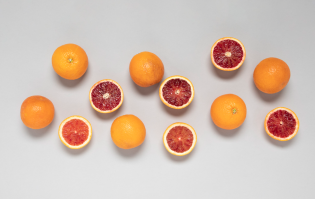
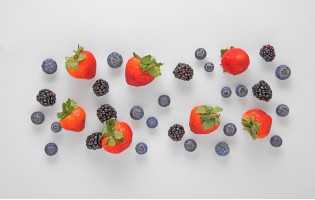
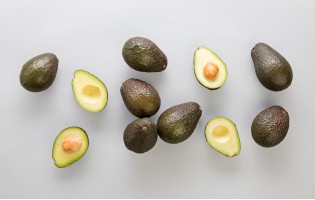



































































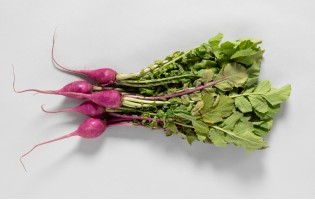




























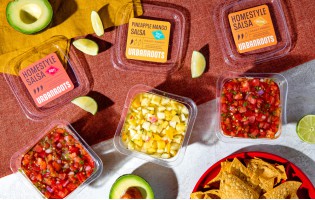
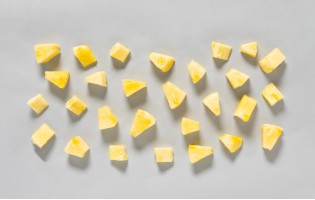












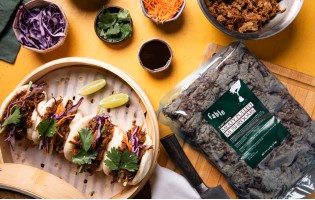

















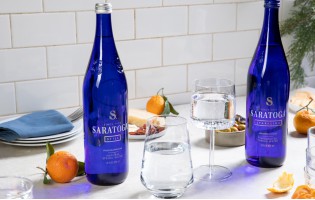
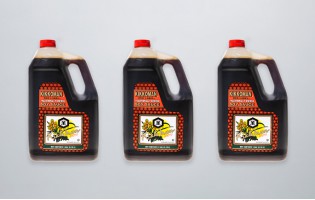







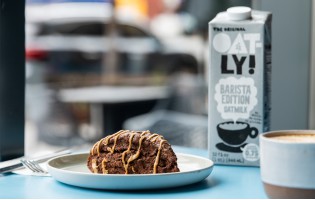



















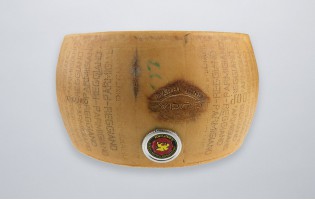
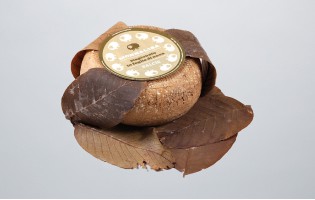









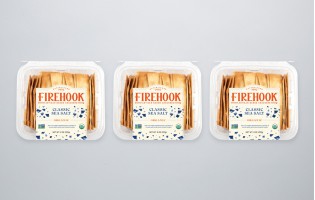
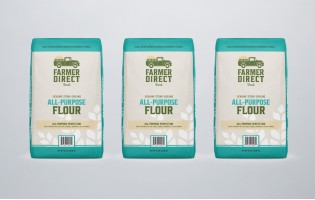


















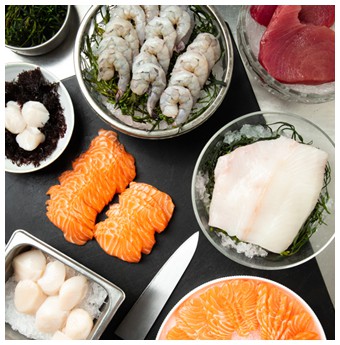
 Fruits
Fruits  Organics
Organics  Vegetables
Vegetables  Fresh Cuts
Fresh Cuts  Meat & Poultry
Meat & Poultry  Grocery
Grocery  Dairy
Dairy  Cheese
Cheese  Bakery
Bakery  Seafood
Seafood 